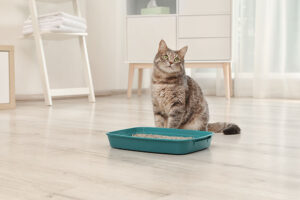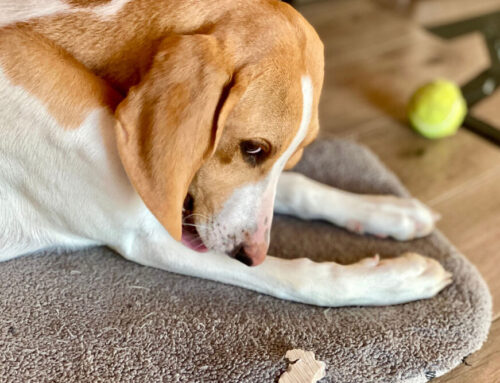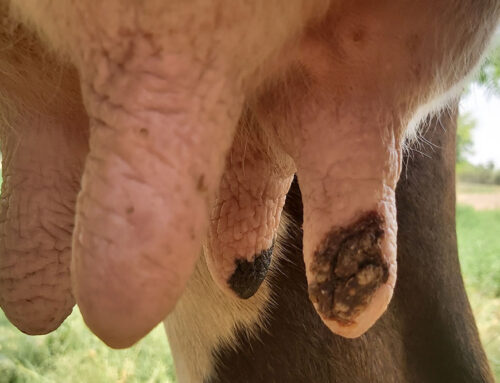Stuck in the Box: Why Constipation Is a Serious Concern for Cats
You notice your cat visiting the litter box again and again, straining with little or no result. Maybe they’re eating less, seem uncomfortable when you touch their abdomen, or have left behind small, hard pellets instead of normal stools. These might seem like minor issues- but they’re often early warnings of constipation, a common but potentially serious problem in cats.
At The Vale Veterinary Group, serving pets across Devon, our experienced team understands how distressing this can be for both cats and their families. With full diagnostic capabilities and individualized care plans, we help uncover what’s behind your cat’s constipation and restore their comfort safely and effectively.
Why Constipation Deserves Immediate Attention
Constipation may start as a simple irregularity but can quickly escalate into a painful and dangerous condition. When stool remains in the colon for too long, it becomes dry and compacted, making it increasingly difficult to pass. Prolonged retention stretches the colon walls and weakens the muscles responsible for contraction.
Over time, this can progress to megacolon in cats– a severe condition where the colon becomes permanently enlarged and loses its ability to function normally. Cats with megacolon may require surgery to remove the affected section of the intestine.
Because cats are instinctively private about pain, constipation often goes unnoticed until it reaches this stage. By paying attention to early warning signs, owners can help their pets avoid unnecessary suffering and invasive procedures.
When Straining Isn’t Constipation
It’s easy to assume that a cat straining in the litter box is simply constipated—but that same behavior can also signal a life-threatening urinary blockage. Male cats, in particular, are at high risk for urethral obstruction, where crystals, inflammation, or mucus block the flow of urine.
A blocked cat may visit the litter box repeatedly, crouch for long periods, or strain without producing any urine or stool. Some vocalize in pain, lick at their genitals, or appear restless and distressed. Because the bladder continues to fill even when blocked, pressure quickly builds inside the body, leading to toxin buildup, kidney failure, or rupture within hours.
If your cat is straining but not producing urine or feces, or seems suddenly uncomfortable, seek emergency veterinary care immediately. Never wait to “see if it passes.” Rapid intervention can save your cat’s life and prevent permanent organ damage.
Regularly monitoring your cat’s litter box habits—both urination and defecation—is one of the simplest and most effective ways to catch problems early.
Common Causes of Constipation in Cats
Constipation has many possible causes, ranging from diet and hydration to underlying illness. Identifying the trigger is key to preventing recurrence.
1. Dehydration and Diet
Inadequate water intake is one of the most common contributors. Cats on predominantly dry food diets are especially prone to dehydration, as kibble contains far less moisture than wet food. A diet too low in fiber can also slow intestinal movement.
Supporting digestive health starts with choosing the right food for your pet, ensuring proper moisture content and balanced nutrition.
2. Medical Conditions
Constipation may signal an underlying disorder:
- Feline hyperthyroidismcan speed up metabolism while disrupting normal digestion.
- Feline inflammatory bowel diseasecan cause alternating diarrhea and constipation.
- Chronic kidney diseaseoften leads to dehydration that makes stools harder and more difficult to pass.
3. Obesity and Inactivity
Excess weight slows metabolism and can physically compress the intestines. Cats who are overweight or sedentary- particularly older indoor cats- are more likely to experience constipation. The Pet Obesity Prevention guidelines emphasize weight management as an important part of digestive and overall health.
4. Structural or Neurological Issues
Nerve damage, spinal injuries, or anatomical defects in the colon, rectum, or pelvis can obstruct normal passage. In some cases, constipation is secondary to disorders of the rectum and anus, which may require surgical correction.
Recognizing the Warning Signs
Cats can’t tell you when they’re constipated, but their behaviour and litter box habits often speak volumes.
Common Symptoms Include:
- Straining in the litter box with little or no stool produced
- Hard, dry, or small stools
- Crying or vocalizing during attempts to defecate
- Decreased appetite or refusal to eat
- Abdominal discomfort or bloating
- Avoiding the litter tray due to pain
- Lethargy or irritability
These symptoms may worsen over time as waste accumulates. Cats may also groom excessively near the anus or appear hunched when sitting.
How Vets Diagnose and Treat Constipation
If your cat hasn’t defecated for more than two days or shows signs of distress, it’s time for professional help. Our veterinarians begin with a full assessment, which may include:
- Physical examination– Checking hydration status and palpating the abdomen to assess stool buildup.
- Blood tests– Evaluating kidney, thyroid, and liver function for systemic causes.
- Imaging– X-rays or ultrasound to assess stool accumulation or detect obstructions.
Learn more about what to do when your pet is not well and when to seek immediate care.
Treatment Options
The goal is to relieve discomfort, restore normal bowel movement, and prevent recurrence.
- Mild constipation– Managed through increased hydration, dietary fiber, and stool softeners or mild laxatives.
- Moderate cases– May require enemas or manual removal under sedation to prevent further complications.
- Severe or recurrent cases– If the colon is stretched or obstructed, surgical correction may be required. In cases of megacolon, surgery can remove affected portions of the colon to restore function.
Home Care and Preventive Strategies
Long-term success depends on addressing lifestyle factors and maintaining good digestive habits:
1. Diet and Hydration
Feed a diet rich in moisture and moderate fiber. Wet food, broth additives, or cat-safe fountains encourage hydration.
2. Regular Exercise
Encourage daily play with climbing toys, wands, or interactive feeders to stimulate intestinal motility.
3. Routine Monitoring
Keep a close eye on litter box habits- changes in stool size, frequency, or consistency often signal early digestive problems.
Stay consistent with routine healthcare and discuss any changes in appetite or elimination at regular check-ups.
When to Seek Urgent Veterinary Care
Constipation can become life-threatening if left untreated. Seek immediate veterinary attention if your cat:
- Hasn’t defecated for more than 48 hours
- Strains or cries in the litter box
- Stops eating or vomits repeatedly
- Appears weak, bloated, or lethargic
The Vale Veterinary Group provides emergency services to our regular clients to stabilize cats experiencing severe constipation or related complications. Call us when you’re worried.

Working With Your Veterinary Team
Managing feline constipation isn’t a one-time fix- it’s an ongoing process that benefits from teamwork between owners and vets. Regular check-ups allow for early detection of risk factors like dehydration, obesity, or thyroid imbalance before they escalate.
Our comprehensive small animal care ensures your cat receives not only treatment for constipation but also support for long-term health, from dental to nutritional care.
Membership in our Premier Paws Club offers preventive health plans that include regular monitoring, nutritional guidance, and early intervention- helping catch issues like constipation before they become emergencies.
Protecting Your Cat’s Comfort and Health
Constipation may seem minor, but in cats, it’s often a sign of deeper health concerns. Prompt action, proper nutrition, and regular veterinary monitoring make a lasting difference in your pet’s comfort and wellbeing.
If your cat is straining, passing hard stools, or avoiding the litter tray, don’t wait. Call The Vale Veterinary Group at 01884 35558 or contact us online to schedule an examination. Our dedicated team will identify the cause, ease your cat’s discomfort, and help prevent future episodes- keeping your feline companion healthy, happy, and pain-free.






Leave A Comment